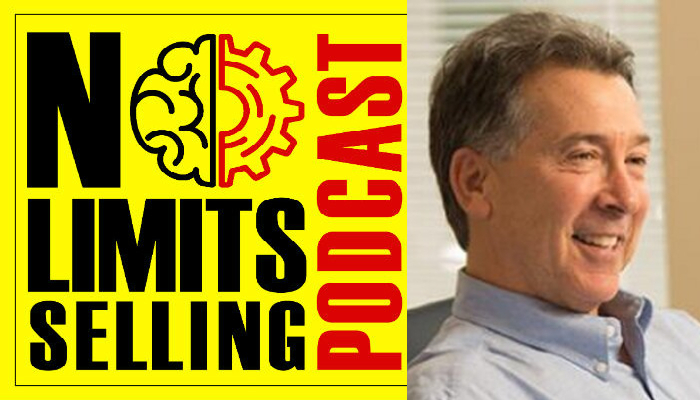Michael Teitelbaum President at Baltimore Magazine
On Episode 87 of The No Limits Selling Podcast, we have Michael Teitelbaum, President at Baltimore Magazine. Michael Teitelbaum has been a leader in the marketing space for decades. He has launched and run several companies.
Currently, he is the president of Baltimore Magazine and can help you reach over 300,000 people each month with Baltimore Magazine's print, digital, and event marketing solutions.

Contact Michael:
[EDITOR’S NOTE: This podcast is sponsored by No Limits Selling. It is a fun, fast-paced podcast that delivers hard-fought business advice that you can implement today to improve your sales and performance]
Interested In Our Real Estate Coaching Services? Explore Our Website: Link
Feeling Not Well Today? You Can Use Our Mindset Boosters App To amp Up Your Mood: Link
Find us on Social Media:
LinkedIn | Facebook community | Instagram
Like what do you listen to? Subscribe to our podcast!
Ready to become fearless? We can help you become fearless in 60 days so you accomplish more in your career Schedule A 15 min Call with UmarSummary
Introduction and Background
The podcast begins with an introduction of Michael Teitelbaum, the President at Baltimore Magazine. He shares his background, including his journey from being a sales representative to becoming the president of the magazine. He attributes his success to his passion for the job and the city of Baltimore, which he says is a great place to live and work.
Challenges and Opportunities in the Publishing Industry
Teitelbaum discusses the challenges and opportunities in the publishing industry. He acknowledges that the industry has changed significantly over the years, with the rise of digital media posing both challenges and opportunities. He emphasizes the importance of adapting to these changes and finding innovative ways to engage readers.
The Role of Baltimore Magazine in the Community
Teitelbaum talks about the role of Baltimore Magazine in the community. He explains that the magazine serves as a platform for sharing stories about the city and its people. He also discusses the magazine's commitment to promoting local businesses and events.
The Importance of Sales in Publishing
Teitelbaum highlights the importance of sales in the publishing industry. He explains that sales are crucial for the survival of any publication, and that a good sales team can make a significant difference in a magazine's success. He also shares some of his strategies for building and managing a successful sales team.
Future Plans for Baltimore Magazine
Towards the end of the podcast, Teitelbaum shares his future plans for Baltimore Magazine. He talks about his vision for the magazine, which includes expanding its digital presence and continuing to serve as a voice for the city of Baltimore. He expresses optimism about the future of the magazine and the publishing industry as a whole.
Conclusion
In this insightful podcast, Michael Teitelbaum, the President of Baltimore Magazine, takes us through his professional journey, the evolving landscape of the publishing industry, and the integral role of Baltimore Magazine in the community. He underscores the importance of sales in the publishing industry and shares his strategies for building a successful sales team. Looking ahead, Teitelbaum envisions an expanded digital presence for the magazine, continuing its mission to serve as a voice for the city of Baltimore.
Despite the challenges in the publishing industry, Teitelbaum's optimism and commitment to innovation underscore a promising future for Baltimore Magazine.
Questions & Answers
Who is Michael Teitelbaum, the President of Baltimore Magazine?
What challenges and opportunities does the publishing industry face?
What role does Baltimore Magazine play in the community?
Why are sales important in the publishing industry?
What are the future plans for Baltimore Magazine?
How does Michael Teitelbaum view the future of Baltimore Magazine and the publishing industry?
Don’t miss this opportunity to transform your real estate career with one-on-one coaching. As an experienced real estate coach, I, Umar Hameed, am dedicated to helping you unlock your full potential and achieve your real estate goals. To learn more about who am I and my clients ↓
If you’re ready to take the next step, book an appointment with me today and begin your journey toward success in the real estate industry.
